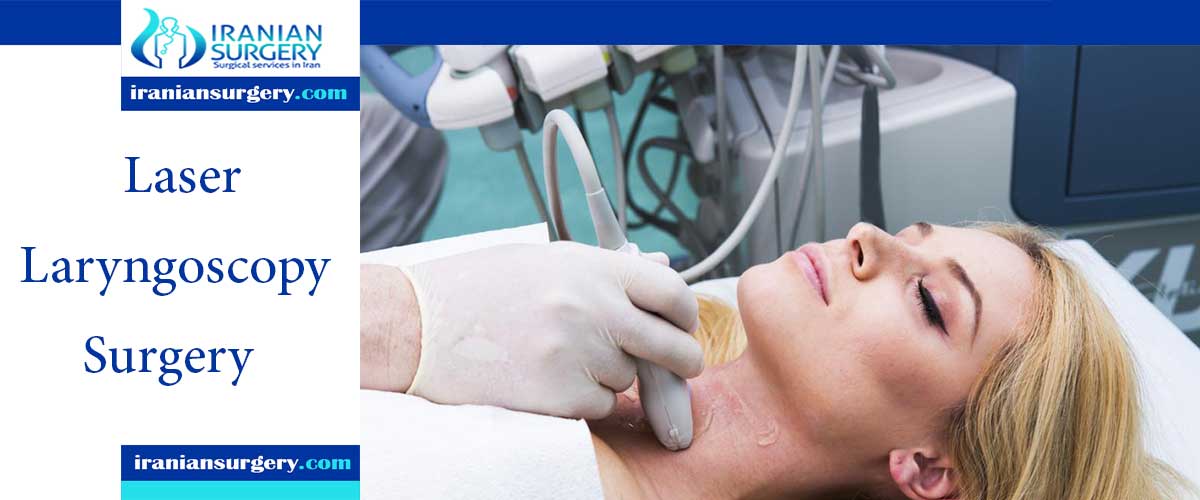laser laryngoscopy surgery

What is laryngoscopy surgery?
Is laryngoscopy painful?
How long does it take for vocal cords to heal after surgery?
How long does a direct laryngoscopy take?
What is laryngoscopy surgery?
A diagnostic laryngoscopy is a procedure that lets your surgeon to look at your larynx (voice box) using an instrument called a laryngoscope. A laryngoscope is a tube with a camera at the end that your surgeon will use to get a clear view of your larynx. Your surgeon may also take a biopsy (sample of tissue) during the procedure.
Some people also have an esophagoscopy done at the same time. This is a procedure that looks at your esophagus (food pipe).
A laryngoscopy is usually done as an outpatient procedure in the operating room. You’ll be given anesthesia (medication that makes you sleep) during the procedure.
We have had the opportunity to employ the CO2 surgical laser with suspension laryngoscopy and microscopic adaptations to treat a variety of laryngeal conditions over two years. Each type of laryngeal condition is discussed, and the benefits of laser management is evaluated. This type of laryngeal management is compared with other forms of treatment such as the standard surgical approaches, electrocautery, and cryosurgery.
Read more about : laryngoscopy surgery for throat
Is laryngoscopy painful?
Laryngoscopy is relatively painless, but the idea of having a scope inserted into the throat can be a little scary for kids, so it helps to understand how a laryngoscopy is done. Anesthesia will prevent pain during the procedure. With a direct method, you may have a sore throat for a few days if a biopsy was done.
Problems from the procedure are rare, but all procedures have some risk. Your doctor will review potential problems such as:
- Pain
- Vomiting and gagging
- Swelling
- Bleeding
- Cuts on the bottom of the tongue from stretching it over the teeth
- Nosebleeds if the scope is passed through the nose
- Reaction from anesthesia
- Breathing problems from swelling
- Infection
Read more about: laryngoscopy surgery recovery
How long does it take for vocal cords to heal after surgery?
Your doctor may ask you to speak as little as you can for 1 to 2 weeks after the procedure. If you speak, use your normal tone of voice and do not talk for very long. Whispering or shouting can strain your vocal cords as they are trying to heal. Try to avoid coughing or clearing your throat while your throat heals.
- If you had a biopsy taken, you may have a sore throat for a few days.
- If you’re having any discomfort, you can rinse out your mouth and gargle with warm salt water. To make a salt water rinse, dissolve 1 tablespoon of salt in 1 quart of warm water. Gargle as often as you like.
- You may want to use a humidifier to help reduce any dryness or swelling in your throat.
- You may also cough up mucus that has some blood in it. This is normal and should stop within 7 days.
- If you usually take aspirin or products containing aspirin, you can start taking them again the day after your procedure after checking with your doctor first.
- You’ll have a follow-up appointment with your doctor in 5 to 7 days. At that time, your doctor will talk with you about the treatment option that’s best for you, based on your results.
Read more about: laryngoscopy thyroid surgery
How long does a direct laryngoscopy take?
Direct laryngoscopy can take up to 45 minutes. You'll be given what's called general anesthesia, so that you will not be awake during the procedure. If a local anesthetic or topical numbing spray was used, it will wear off in about 30 minutes. Your child should not eat or drink anything until the spray has worn off and the throat is no longer numb.
After a direct laryngoscopy, your child will be watched by a nurse until fully awake and able to swallow. This usually takes about 2 hours. In some cases, an overnight hospital stay may be required. Your child may have some nausea, general muscle aches, and feel tired for a day or two.
Read more about: Thyroid cancer treatment
Laryngoscopy complications
It’s rare to have problems after a laryngoscopy, but it can still happen. Some of these complications include:
- Pain or swelling in the mouth, tongue, or throat
- Bleeding
- Hoarseness
- Gagging or vomiting
- Infection
If you were given anesthesia, you might feel nauseous or sleepy afterward. You might have a dry mouth or a sore throat. These are common reactions to the anesthesia.
But if you find yourself in increasing pain, running a fever, coughing or vomiting blood, having trouble breathing or swallowing, or having chest pains, you should call your doctor.
Read more about: laser laryngoscopy surgery
Laryngoscopy results
The doctor will explain the findings after the procedure. If a biopsy was taken, a laboratory will examine the tissue and report the results to your doctor, who will discuss the results and treatment options with you. Usually, biopsy results take about 3 to 5 days.
Depending on the outcome of the exam, your doctor might schedule an office visit or a follow-up procedure for 4 to 6 weeks after the initial laryngoscopy.
When your child is having any kind of procedure, it's understandable to be a little uneasy. But it helps to know that a laryngoscopy is considered an extremely effective and routine medical exam and complications are rare. However, as with most procedures, there are some risks, which your doctor will review with you. If you have any questions about laryngoscopy, speak with your doctor.
Read more about: Thyroidectomy recovery

